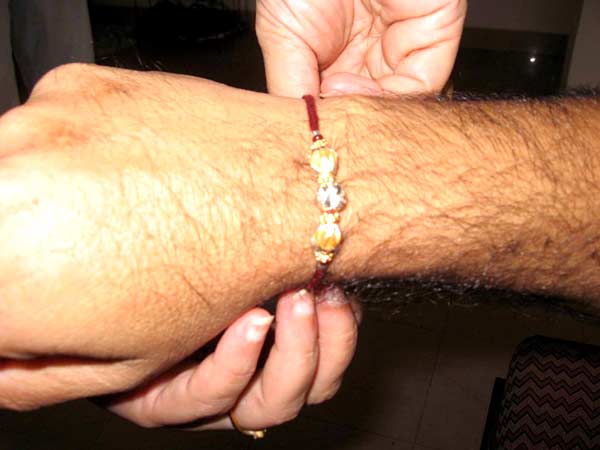This article provides information on the significance of the festival of Rakhi. Find out more about the significance of Rakha Bandhan.
Rakhi Significance

|
Rakhi is a festival dedicated to all the brothers and sisters In India, symbolizing the love and emotional bond shared by them. The graceful relationship between brothers and sisters has so much regard and magnitude for Hindus that an entire day of the year is devoted by them for the celebration of this pious relationship. Hindu community celebrates this special day like a festival and calls it 'Rakhi' or 'Raksha-Bandhan'. The literal meaning of 'Raksha-Bandhan' is 'the bond of protection'.
On Rakhi, it is a custom for the sisters to tie a scared thread, called Rakhi, on their brother's wrist. The brothers, in turn, promise their sisters to protect and safeguard them against all the evil forces. Though Rakhi festival has special importance for the brothers and sisters, it is celebrated with great zeal and enthusiasm by the entire family. Thus, the festival of Raksha Bandhan represents not only the siblings' emotional bond, but also an occasion of family get-togethers and reviving relationships.
There are several examples that show that Rakhi has a much broader connotation. The sacred thread of Rakhi is not just limited to brothers and sisters, but can be tied by wife, a daughter or mother. Rishis also used to tie the sacred bond to the people who came to seek their blessings, thus signifying protection from any evil. The festival of Rakhi also signifies peaceful coexistence, which is obvious when neighbors and friends tie Rakhi on each other's wrists. Rakhi also holds an oath of practicing moral, spiritual and cultural values.
The values and the sentiments attached to Raksha Bandhan show the traditional as well as broader significance of the festival. Since the ancient times, Rakhi has been a symbol of seeking help or protection from the powerful ones, by the weaker souls. In due course of time the moods of this festival's celebrations have changed, a lot but the basic idea of 'a bond of protection' has remained unchanged. Even in the modern times the festival is beyond the difference of caste, race, religious, haves and have-nots, and even national boundaries.




